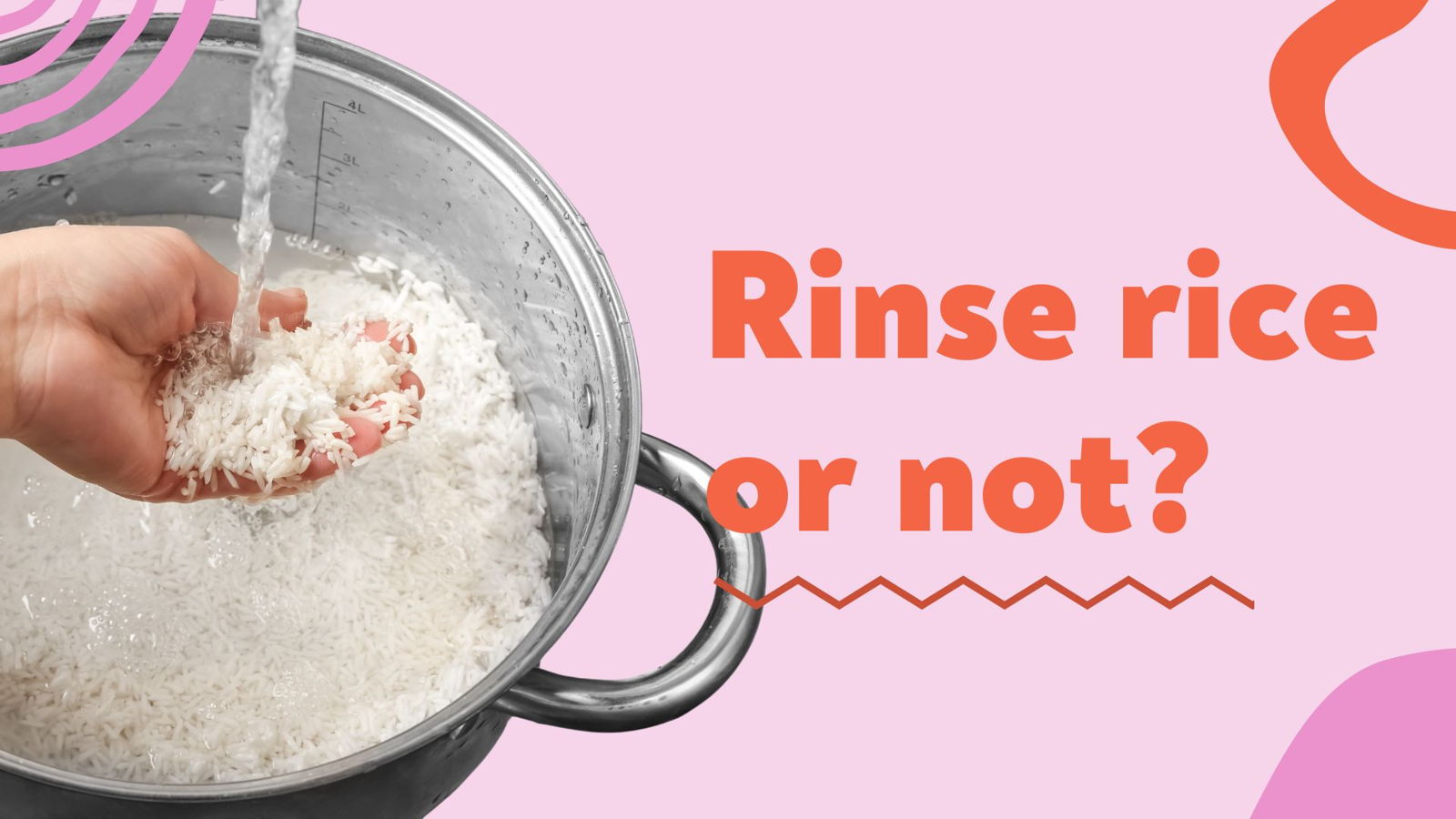Rinsing or washing rice is an important step to getting fluffy cooked rice. It is an easy step to rinsing the rice before cooking or boiling.
Do not wash rice after cooking or you will get a wet mess!
The best way to do it is to wash the rice under running water. You can do it with or without a strainer. Use only room temperature water or cold water because warm water will soften the rice resulting in it being soggy.
I have been eating rice my whole life and I can tell the difference if the rice is unwashed before cooking. Even when cooking rice with coconut milk, you have to rinse it first before cooking.
Why Don’t People Wash Rice?
Just like in most Asian homes, the act of rinsing rice is never questioned. It was through emails from our readers asking us if there is really a need to wash rice. As mentioned in a FDA research, vitamins such as iron, cadmium, manganese, folate, thiamin and niacin will be washed away.
Also, there is never a need to wash rice when making risotto or paella. So why wash long grained (e.g. jasmine) rice or other short grained rice (e.g. sushi rice)?
Well, rice in Asian meals are generally fluffier. Each grain is visibly shiny too. Let's get to the THREE reasons why you should always wash or rinse rice with water.
1. Fluffier Rice
One of the main reasons of washing rice is to remove the starch from the surface of the grains. This is needed so that it removes the surface starches on the rice and does not create a gummy layer in the pot.
This will result in rice being fluffy and easily absorbs sauces and gravy. It's very important if you want to cook a good plate of fried rice because each grain of rice needs to be fried evenly in a hot wok.
2. Shinier Appearance
Once the rice is washed, it will indeed have a cleaner and shinier outlook. Most importantly, any impurities would be removed by doing so.
3. Gets Rid of Dirt and Chemical
Washing the rice helps to get rid of any debris.That way, the rice is cleaned before cooking.
It also helps to remove any chemicals which might have been used in the milling process.
Does Rinsing Rice Remove Arsenic?
The general public is usually concerned about the health risks from inorganic arsenic in rice. Rinsing the rice is said to have only “minimal effect on the inorganic arsenic content of the cooked grain” according to the same FDA research mentioned above.
Rice must be washed with excess water to get rid of its arsenic level. To do so, boil it in a pot of water like how you would do with pasta. Note that this is not how we do it in our kitchen but it is recommended by the FDA.
What Happens if You Do Not Rinse the Rice?
If you do not rinse the rice, residual starch from the grains will gelatinized during the cooking process and create cooked grains to be of sticky texture. The rice will look more like risotto than the fluffy rice that are served at restaurants.
Best Way to Rinse Rice
I do it the way I was taught by my mother. Rinse the rice two to three times to remove any impurities. Gently swirl the grains in cold water. Note that the murkiness will not subside much and the water will not become completely clear.
For best results, complete washing the rice in less than 30 seconds to prevent it from absorbing the starchy water.
Do You Rinse the Rice After Cooking?
Please do not do that. The rice grains get broken and the rice lumps together. Unless you'd want to cook some porridge, rice must not be rinsed after cooking.

